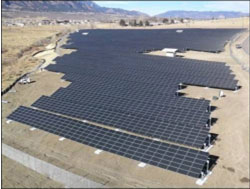Every two years, Harvard University gives the "Innovations in American Government Award" to recognize (and provide grants) for initiatives on the part of local, state, federal and tribal governments that address critical societal issues.
"Despite diminishing resources, these government programs have developed model innovations that other struggling agencies should be inspired to replicate and adapt to their own communities," says Stephen Goldsmith, who heads the Innovations in Government program at the Ash Center for Democratic Governance and Innovation at Harvard’s John F. Kennedy School of Government.
The policy issues these innovations address include: crime prevention, economic development, environmental and community revitalization, employment, education, and health care.
Environmental Revitalization
On the environmental front, there are two awards, One goes to 70 sovereign indigenous governments that make up the Yukon River Tribes and Nations, mostly in Alaska, that are cooperating to protect the Yukon River through their Watershed Council.
The other goes to the Environmental Protection Agency’s Re-Powering America’s Land Initiative, which sites renewable energy projects on contaminated land, landfills, and mine sites. The EPA identifies the renewable energy potential of these sites and provides assistance to communities and developers to make use of them.
The initiative transforms liabilities into assets for communities, while keeping renewable energy development off undeveloped greenfields. Since the program began in 2008, more than 70 projects – mostly solar – have been built in 26 states totaling about 215 MW.
This 2 megawatt solar system is tops a capped landfill in Ft. Carson, Colorado:

"It’s not just about using these sites for energy production but using these sites to re-energize communities," says Mathy Stanislaus, assistant administrator for EPA’s Office of Solid Waste and Emergency Response. "These studies are the first step to transforming these sites from eyesores today to community assets tomorrow."
A Culture of Innovation
Interestingly, a number of this year’s Top 25 programs foster a culture of innovation through online collaboration and crowdsourcing.
LAUNCH – a partnership among NIKE, NASA, USAID and USAID and the US State Department is a challenge to create sustainable materials – "innovations that transform the system of fabrics to one that advances equitable global economic growth, drives human prosperity and replenishes the planet’s resources."
The General Services Administration’s Challenge.gov uses crowdsourcing contests to solve government issues: government agencies post challenges, and the broader American public is awarded for submitting winning ideas. The Department of Transportation’s IdeaHub also uses an online platform to encourage its employees to communicate new ideas for making the department more adaptable and enterprising.
Helping Troubled Neighborhoods
The Department of Housing and Urban Development is making an impact through its Sustainable Communities Initiative on crime, failing schools, poor infrastructure, and other interconnected causes of poverty.
Here are the Top 25 programs:
